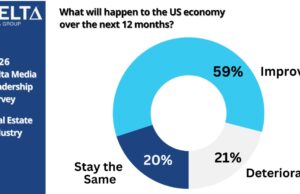WASHINGTON, D.C. – September 15, 2011 – (RealEstateRama) — David H. Stevens, President and CEO of the Mortgage Bankers Association (MBA), testified today before the Senate Banking Subcommittee on Housing, Transportation and Community Development at a hearing titled, “New Ideas for Refinancing and Restructuring Mortgage Loans.”
Below is Mr. Stevens’ oral statement before the subcommittee, as prepared for delivery.
Thank you for the opportunity to testify today on new ideas for refinancing and restructuring mortgage loans. I am encouraged that the focus of today’s hearing is toward the future and the role that private capital can play in driving our housing recovery. MBA and its members strongly believe that that housing will be a key factor in our economic recovery.
MBA recognizes that our ability to affect change depends on rebuilding badly shaken trust by restoring credibility, transparency and integrity to our industry. We all know that there are many who share responsibility for the mistakes that led us to this place, including mortgage bankers and servicers. However rather than pointing fingers, all stakeholders need to work together to stabilize and revitalize the housing industry.
MBA is grateful for the variety of relief efforts undertaken by Congress and two administrations, including HARP, HAMP, 2MP and other efforts. Clearly the challenge is greater than these many programs could support on their own. Mortgage servicers have also participated by completing 4.8 million loan modifications in the last four years, and any successful solution must include those entities as part of the effort. Additionally, any new programs must give lenders adequate time to implement these changes.
In searching for solutions, MBA’s members continue to be concerned about the ongoing conflicting policy objectives emanating from all involved stakeholders. This regulatory and legal ambiguity is causing consumers to pay an uncertainty premium in the form of increased costs and diminished access to credit.
MBA recently convened a task force to develop new solutions to reinvigorate the housing market by bringing back private capital to absorb excess supply. We believe any program to help spur the housing recovery should be prioritized in the following order, and I elaborate on each of the three steps in greater detail in my written testimony:
First, we need to help the large number of borrows unable to refinance at today’s near-record low interest rates. While policymakers have introduced programs to help some distressed borrowers, eligibility criteria excludes a significant number of borrowers who would benefit from refinancing.
Some advocates have called for other types of large-scale mortgage refinance programs that would include principal forgiveness by lenders, and new mortgage rates below current market rates. Although such programs could have a positive impact on the housing market and the economy, the CBO and other analysts indicate that the programs would entail significantly higher costs.
MBA believes the preferred approach is adjusting the guidelines of existing programs. Policymakers should consider reducing the GSEs’ loan level price adjustments on HARP-eligible loans, which would reduce costs to borrowers that are arguably unnecessary because the GSEs already assume the credit risk of the existing loan.
Other options include considering streamlining appraisal and other closing requirements in order to reduce the time and expense of refinancing and raising HARP’s 1 LTV requirements to enable more otherwise qualified “underwater” borrowers to refinance into a lower interest rate mortgage.
Finally FHFA should expand the loans eligible for a HARP refinance to loans that were originated after June 2009.
Senator Menendez and others have suggested a shared appreciation mortgage, where, a lender agrees to reduce the principal balance of a troubled borrower’s mortgage in exchange for the borrower sharing any future increase in the home’s appreciation with the lender. We look forward to further discussions with you on this and other possible solutions to help borrowers.
Second, we should encourage local investment in the existing housing inventory. Local investors understand their local rental market and have a long-term stake in the community. Existing government programs should be modified to support financing and availability for local investment in rental housing.
Unfortunately, individual sales and local investors cannot provide the economies of scale required to recover the housing market. MBA supports bulk investor sales of properties in order to alleviate the REO inventory. In order for any large scale program to be successful, it should be simple, quick to administer, and attractive to investors.
Safeguards should include investor screening, buy and hold covenants, revenue sharing, and rehabilitation incentives, though they should not be so restrictive as to sabotage the program’s success. We also believe that the GSEs should consider a mechanism to allow investors to identify and aggregate REO properties, likely enhancing multiple property sales.
Mr. Chairman, thank you again for the opportunity to testify today. I look forward to working with you and other members of the committee to find creative solutions to this critical issue. As we work to attract private capital back to the housing market, I urge you to pay careful attention to the relationship between housing and the overall economy as well as to the importance of certainty for consumers, lenders, and investors.
I believe it is important to remember that no part of the housing market operates in vacuum. Instead the housing market is a series of complex, but interdependent systems and well intentioned change may result in unintended consequences that could result in increased costs and dimished access to credit for consumers.
###
The Mortgage Bankers Association (MBA) is the national association representing the real estate finance industry, an industry that employs more than 280,000 people in virtually every community in the country. Headquartered in Washington, D.C., the association works to ensure the continued strength of the nation’s residential and commercial real estate markets; to expand homeownership and extend access to affordable housing to all Americans. MBA promotes fair and ethical lending practices and fosters professional excellence among real estate finance employees through a wide range of educational programs and a variety of publications. Its membership of over 2,200 companies includes all elements of real estate finance: mortgage companies, mortgage brokers, commercial banks, thrifts, Wall Street conduits, life insurance companies and others in the mortgage lending field. For additional information, visit MBA’s Web site: www.mortgagebankers.org.










